







Nurturing a wild, wonderous, and welcoming environment for all.


















Nurturing a wild, wonderous, and welcoming environment for all.









Much like gender identity and sexual orientation, family is a fluid word. There are no two that are alike and each one appears on a wide spectrum of what it means to be family.
Family can mean your parents and siblings. It can mean your grandparents, aunts, uncles and cousins. It can mean caring strangers who took you in and provided love and understanding. It can also mean the friends in your life you depend on and who in turn depend on you.
Since families are so varied and different, we here at Watermark like to put together a varied collection of stories for our annual Rainbow Family Guide. This, our fifth guide in the series, explores the resources available for LGBTQ+ youth, parents and families after a frightening and difficult year for LGBTQ+ Floridians.
First, we look at the silent crisis that is unfolding in the heart of Central Florida and Tampa Bay — LGBTQ+ youth finding themselves without a place to call home. Despite the vibrant Pride parades and the appearance of acceptance, many LGBTQ+ youth face homelessness due to
We hope you enjoy our latest

Owner/Publisher
Rick Todd
Editor-in-Chief
Managing
Creative
Sales
Account
Administrative
Founder
their family's denial or disapproval of their sexual orientation or gender identity. We chat with local organizations whose mission it is to help these LGBTQ+ youth and about how they are doing so.
Next, with the everchanging political landscape in Florida, we look at what kind of impact these new and challenged laws are having on the LGBTQ+ students in the state. Staying with the schools, we also look at how joining a GSA can help prepare you for college and beyond.
You will also find a page with activities in this guide so you can have a little bit of fun while also learning something about being LGBTQ+.
Finally, we have included a variety of other local, statewide and nationwide resources to help you with all your LGBTQ+ youth, family and individual needs whether you are a parent in the community or have a queer youth in your care.
Contents of this Rainbow Family Guide are protected by federal copyright law and may not be reproduced in whole or in part without the permission of the publishers. Publication of the name or photograph of any person or organization in articles, advertising, or listing is not to be construed as any indication of the sexual orientation of such persons or members or organizations. Watermark Publishing Group cannot accept responsibility for claims made by advertisers.
© Watermark Publishing Group
Phone: ORL: 407-481-2243
TB: 813-655-9890
Publisher@WatermarkOnline.com WatermarkOnline.com

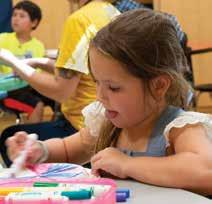
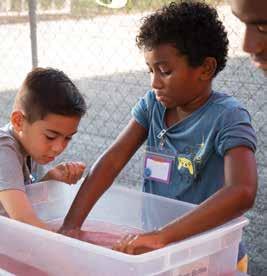
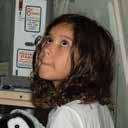


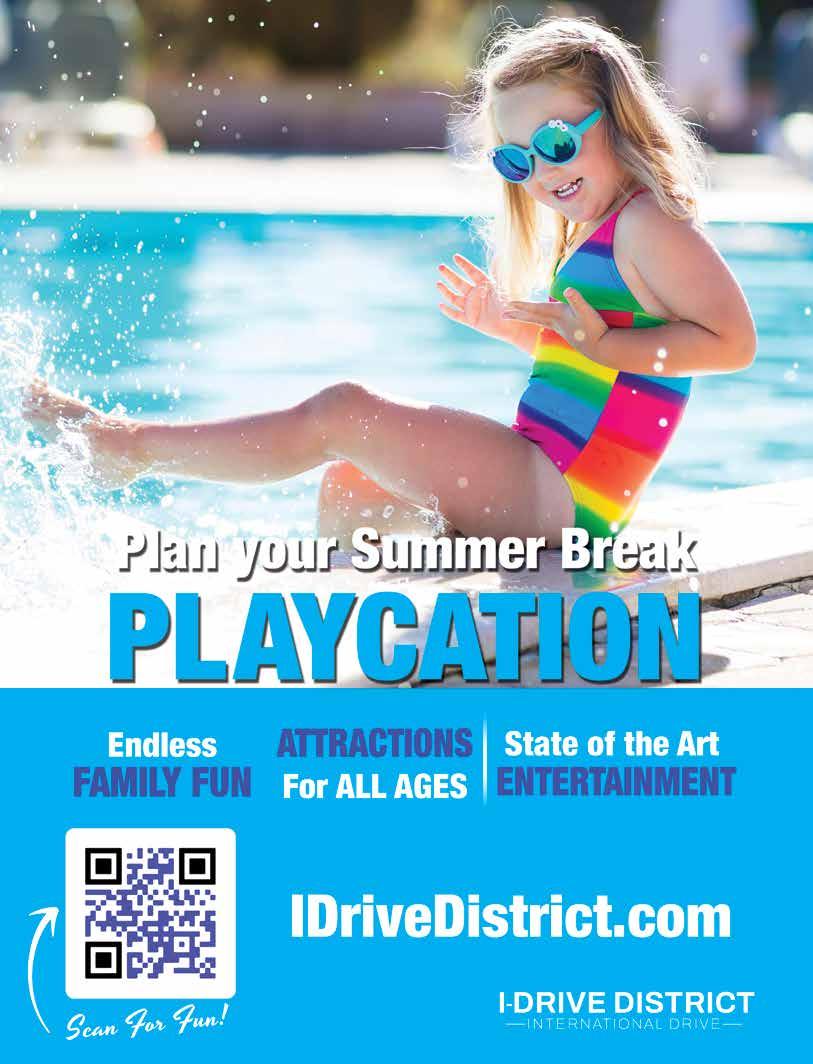


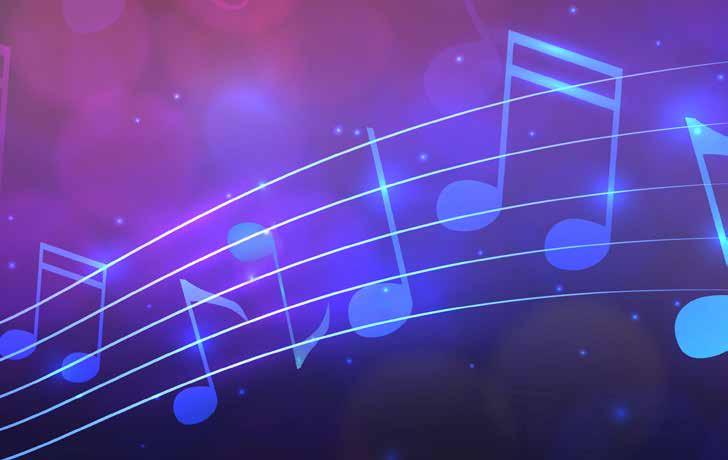
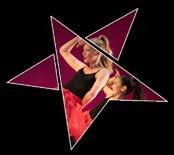



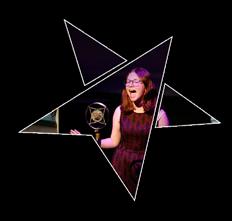
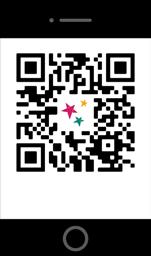
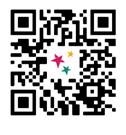
Some Floridians might find themselves in the comforts of home, social media scrolling as an evening thunderstorm approaches, and it may not cross their minds that young people are worrying about the gathering clouds without a safe place to spend the night.
A silent crisis is unfolding in Central Florida and Tampa Bay. Even with vibrant Pride parades and the appearance of acceptance, many LGBTQ+ youth face homelessness due to their family's disapproval.
Recent studies have painted a stark picture of LGBTQ+ youth homelessness in Florida. Nationally, the Trevor Project reports that 28% of LGBTQ+ youth reported experiencing homelessness or housing instability, and the absence of legal protections in Florida is a call to action. Nonprofit organizations and local advocates are tirelessly pushing for laws that safeguard LGBTQ+ youth, and each step forward is a step towards a more inclusive society that addresses the crisis affecting this vulnerable population.
In the bustling communities of Central Florida and Tampa Bay, beacons of hope shine for LGBTQ+ youth facing homelessness. These young individuals can forge paths to stability with the support of these organizations advocating for change.
The Homeless Services Network of Central Florida focuses on getting people into housing. Chief Operating Officer Brian Postlewait says they "work with local government effectively and efficiently to end homelessness." Programs include permanent supportive housing, rapid rehousing, host homes and a drop-in center.
Postlewait says that the number of LGBTQ+ unhoused youth is shocking. "While homelessness is tragic and traumatic for everyone, LGBTQ youth experience homelessness at a much higher rate than almost any of their counterparts,” he notes. “Youth in particular, I think 40% experiencing homelessness identify as LGBTQ. In our community, we have some data that suggests it's closer to 50%. This can be due to family rejection and a lack of resources.
"If you're LGBTQ, you're experiencing discrimination, you may feel unsafe,” he continues. “There are a variety of programs that may be structured for cisgender, heterosexual individuals. Some shelters have limited flexibility with all women's dorms or all men's dorms, so even shelters that do their best to accommodate, if you're an LGBTQ youth, you have a whole set of behaviors about trying to keep yourself safe and a shelter may not appear to you as a safe place to be."
Community leaders of the Central Florida Commission on Homelessness, including business persons in major cities and counties, passed a resolution that said they support low-barrier climate-controlled shelters. "That resolution is indicative of our community's commitment to finding dignified solutions," he explains. Learn more at HSNCFL.org.

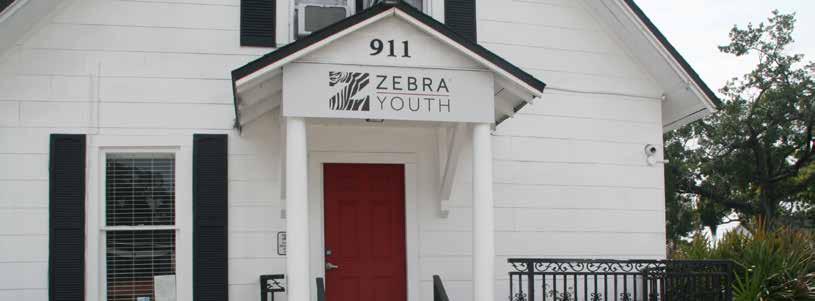
Faine House operates a 7,000-square-foot transitional co-ed housing facility in the Pine Hills community with 10 private bedrooms for 18- to 23-year-olds. They provide temporary housing and have contracted with an agency for mental health counseling.
"We emphasize helping young people deal with their trauma," program director Ray Gaines says. "Our goal is to get our young adults working towards independence." All residents can stay up to two years and must maintain a job and/or attend school. Many residents attend community colleges or vocational schools.
"The LGBTQ population has a hard time being included, so we try to make sure our house is super inclusive to everyone," he says. "We foster a family environment. When you come in, it feels like home. You won't see a lot of rules and regulations on the wall."
Gaines recalls his favorite success story of a young woman who has been in the home twice. She was unengaged and held a bleak outlook on life. She wasn't interested in school or employment. She sat on the parking lot pavement crying because she didn't understand what was needed to be independent.
"'I'm fine living out in the woods or in my car, Mr. Ray,' she said," he recounts. "We now turn the tables. She's been here a year and a half, has a job, attends culinary school and graduates in May. She's gearing up for her own apartment. She's such a joy to be around ... We sit back, laugh, and cry about that time we were sitting out in the parking lot." Learn more at TheFaineHouse.org.
Zebra Youth is another Central Florida organization that empowers LGBTQ+ youth who are ages 18-24 and facing homelessness. Their short-term housing initiative, the Bridge Housing Program, has 11 beds and stabilizes young individuals. It also guides them toward housing readiness through personalized case plans. Given the high demand, a waiting list often forms. To apply, unhoused youth complete a membership application and program agreements.
"We have specific locations that are leased by Zebra. That program has been around since 2013," explains Heather Wilke, executive director. "We provide short-term housing for LGBTQ youth in that program." Rapid rehousing is a voucher program that will allow youth to have their own lease and stay up to two years, though one program is up to three years for youth living with HIV.
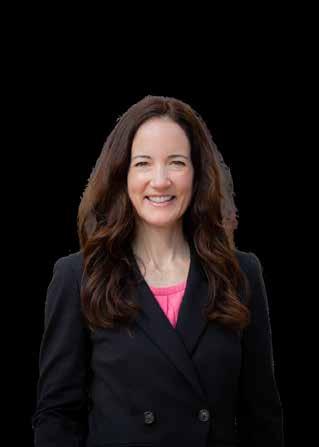
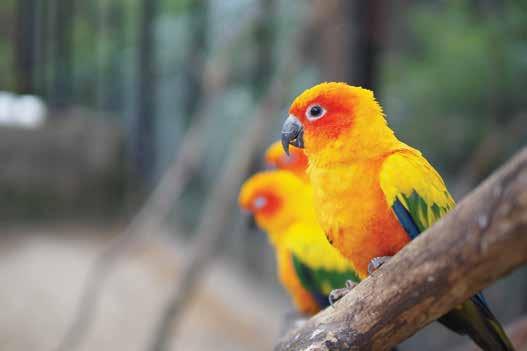





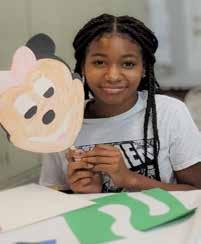



The youth is assigned a case manager that they meet with regularly to complete their goals of maintaining their housing. Part of case management is helping them ensure they and the property they reside in are safe. They also provide educational and vocational programs to help youth transition from homelessness.
Zebra Youth also offers mental health counseling as one of their major programs. "We have therapists and therapist interns on staff," Wilkie says. She also notes that one of the main roadblocks facing the LGBTQ+ youth homeless population is the lack of support from family.
Wilke notes the best way to help homeless LGBTQ+ youth is to speak up. "We need activism and lobbying for ... laws that impact our youth to be dismantled," she says. Learn more at ZebraYouth.org.
Demaris Sanchez, founder of I Am Hopeful in Tampa, had to do something to help unhoused youth. In 2018, this real estate agent founded her 501c3 organization to help youth ages 18-25 navigate the system. Young people must apply to qualify for the program and mental health services are available by referral. Sanchez does this without funding from the government.
family that lives close by the school they are attending to allow them to complete high school," Sanchez explains. "After graduation, they enroll in the military, attend college or complete a technical degree. They need to have an action plan to qualify."
Sanchez says most of the homeless LGBTQ+ youth have been disowned by their parents. She clarifies that unhoused youth, once certified as homeless, qualify for free education through a completed FAFSA — assisted by her nonprofit. Additionally, aging-out foster children are also eligible.
Upon high school graduation, students who plan to attend college move from their temporary family residence to dormitories funded by government grants. "If a youth turns 18 in the foster care system and they want to move out or the foster parents tell them to move out, the very next day, they will have free education and rental assistance funding to pay for housing. Most foster kids don't know their rights and what is available to them. They need to talk to their social worker," she explains. "Educating
to essentials like shelter and food, and assistance in accessing education and other vital services. Though she agrees foster care may not always be the best option, youth under 18 will exit the system with the benefits.
Sanchez explains, "The major problem with homeless youth is lack of information. We need more families willing to host these kids. We need a building that we can convert into a shelter — a bridge home for these kids to provide the tools they need to navigate through life successfully." Learn more at IAmHopeful.org.
HSNCFL, Faine House, Zebra Youth and I Am Hopeful are just a few organizations that are helping turn the tide against LGBTQ+ youth homelessness. Their mission to save young people provides temporary shelter and a path toward recovery.
Their collective dream is one night, in the not-so-distant future, Florida's unprotected LGBTQ+ youth won't be afraid to sleep





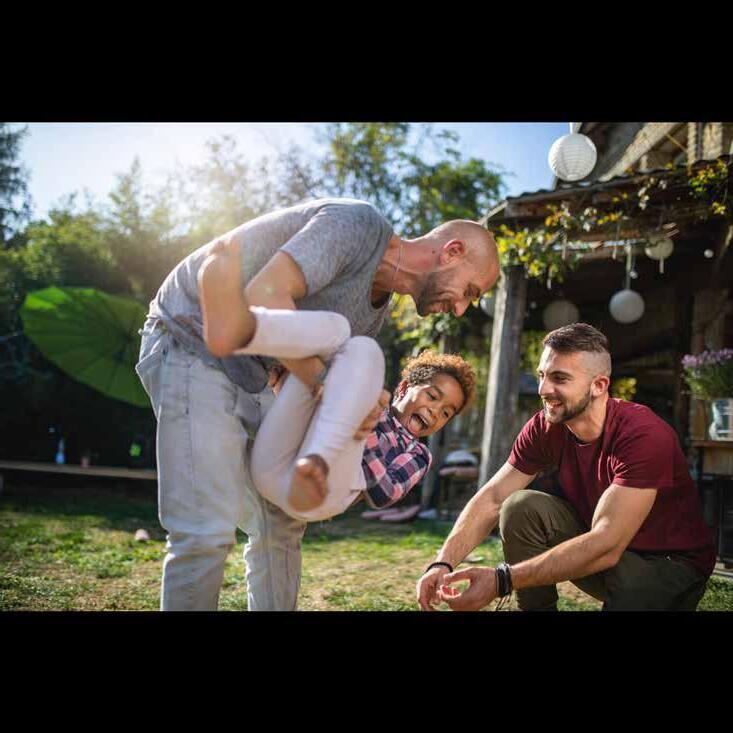


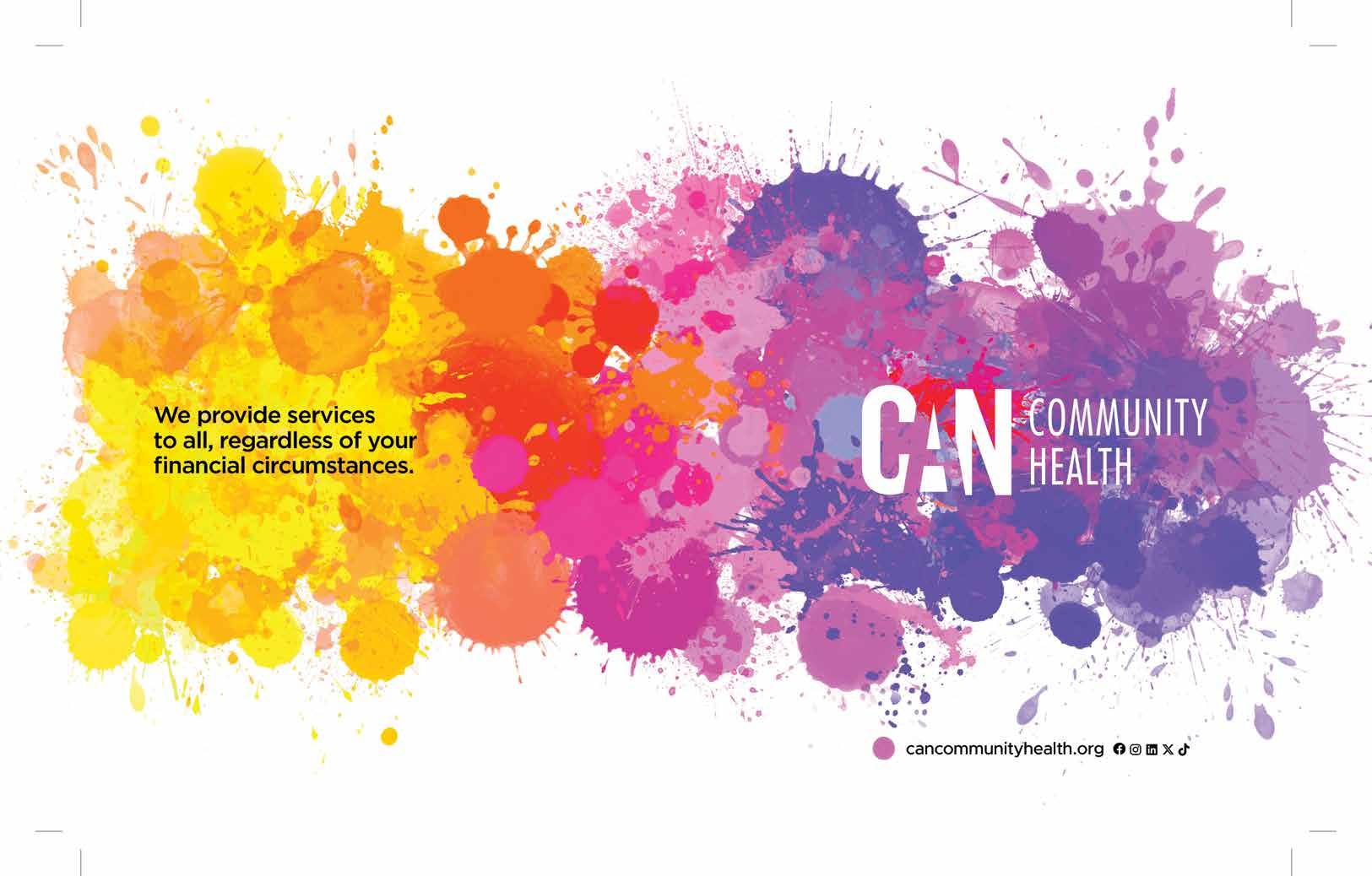





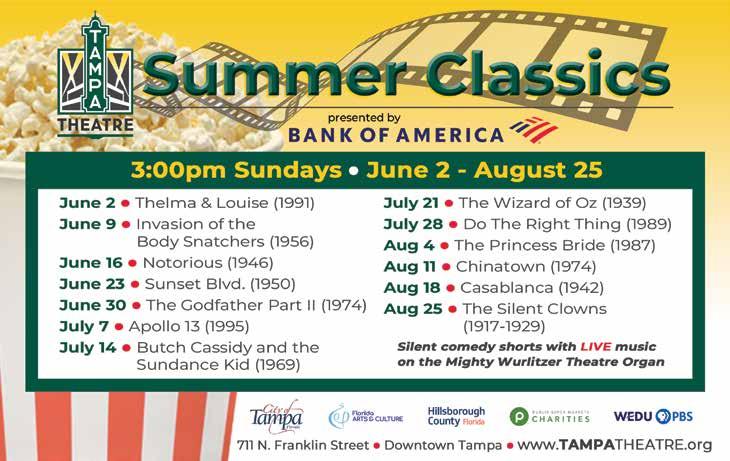

In Florida, LGBTQ+ youth should know what can or can’t affect them. There were many bills nearly signed into law or that have been signed into law that target the LGBTQ+ community, especially the youth.
The Parental Rights in Education Act, also known as “Don’t Say Gay or Trans,” was signed into law by Gov. Ron DeSantis in March 2022. It did not define the terms it used like “age-appropriate” or “developmentally appropriate.”
The law was created with vague language and was framed not only for parental rights but as a way to “protect kids.” In 2023, it was expanded to high school.
Two-thirds of teachers say they self-censor when it comes to teaching about topics of race and gender even when no state laws restrict such work, according to a national survey by RAND Corp.
In March 2024, a settlement between LGBTQ+ advocates and the state changed things. This cleared up a large part of the law, advising teachers and students can speak freely and write about gender identity and sexual orientation in classroom discussions, essays and projects as long as it’s not formal instruction.
So, what does that mean? The law still bans instruction in classrooms, books or possibly sections of textbooks that would instruct people in any way about gender identity and sexual orientation. The law is meant to be neutral and doesn’t apply to library books not used in the classroom. Depending on the context of the book a teacher may not be able to read it aloud to the class.

If any anti-bullying programs were put on pause or possibly removed, they can return. Teachers can place stickers in their classrooms to designate the space as an LGBTQ+ safe space again.
These attacks bring up mental health concerns for the youth.
In 2022, 73% of LGBTQ+ youth in Florida reported symptoms of anxiety and 60% of LGBTQ+ youth in Florida reported symptoms of depression, according to The Trevor Project.
The policies are still in effect with AP African American history being banned because of its queer section. The attacks on LGBTQ+ youth don’t stop at high school; sociology is no longer a core curriculum course for undergrads because of the unit on human sexuality.
In recent years, Republicans have filed over 20 of the most antiLGBTQ+ bills the state has seen, including attacks on transgender rights, banning Pride flags and more. Stop WOKE Teacher Training, or HB 1291, was another bill that was passed into law.
HB 1291 prohibits educational discussions about systemic and institutional racism, sexism, oppression and privilege to adults participating in teacher training preparation programs, according to The American Civil Liberties Union.
Hundreds of people protested the proposed bills like HB 1639, which would require transgender people to have their sex assigned at birth listed on their driver’s license and ID cards, instead of listing their gender identity. This memo was untimely passed by the Florida Department of Highway Safety and Motor Vehicles Deputy Executive Director Robert Kynoch.
A pro-LGBTQ+ bill, PEP Access or HB 159, was passed to oppose the attacks. This bill will allow pharmacists to prescribe “postexposure prophylaxis” or PEP to prevent an HIV infection after exposure. This is a much-needed bill as Florida remains near the top of the list of states with the highest number of new HIV cases.
These are groundbreaking changes as the courts have shut down other bills. Many organizations are still fighting for LGBTQ+ rights, from Orlando Youth Alliance to Equality Florida.
Organizations that fight for advocacy are vital to LGBTQ+ youth as they offer resources, mentorship and safe spaces for those in need. Having a place of belonging and empowerment provides a sense of support like no other.
What lies ahead for Florida’s bills and laws is unknown, but it’s up to the youth to rise above the attacks and change for the better. The new generation can stand up for injustice, learn, grow and thrive in an equal environment regardless of sexual orientation or gender identity.
For more information on laws impacting the LGBTQ+ community, visit EQFL.org, and check out our LGBTQ+ youth resource page in this guide on page 21.
Photo by Dylan Todd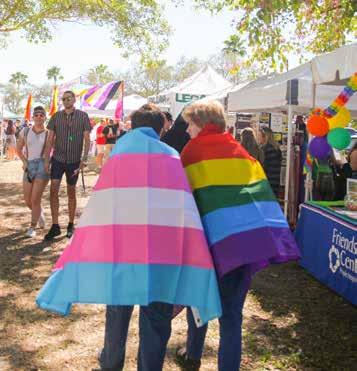

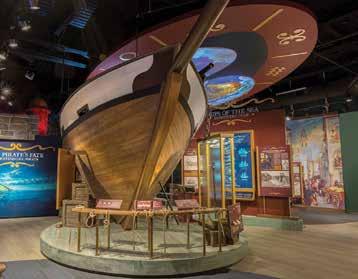


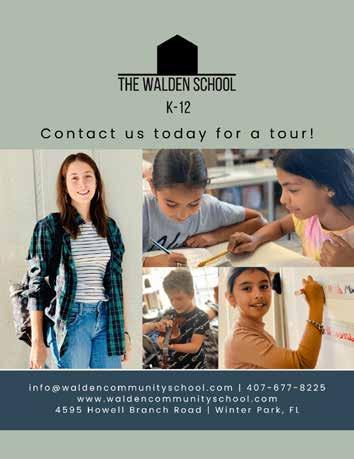
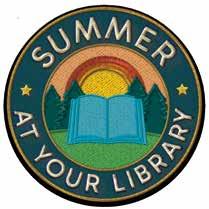
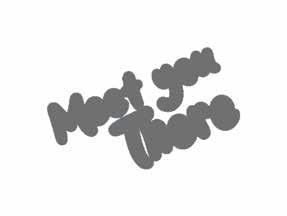



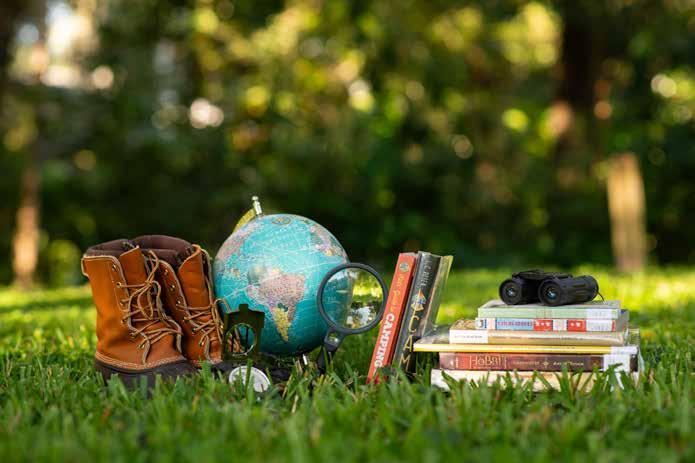
In a time when hate can
feel overwhelming,
nothing is more important than an accepting community that helps make you feel empowered to be your most authentic self.
Being free to be who you are is especially important for youth as they try to figure out who they are. This is the essential thing that Gender-Sexuality or Gay-Straight Alliances, also known as GSA clubs, offer kids in many high schools. They create a space where kids can feel safe, where they can learn about things that affect them that they may not have been able to learn about otherwise and let queer kids know that they are not alone in their struggles.
“I didn’t know anything about the queer community or different identities or anything,” says Elle Acosta about their time before joining their high school’s GSA club. “I learned a lot, did a lot of selfeducation.”
Acosta, now a third-year student at the University of South Florida, was president of the Paxon School for Advanced Studies GSA club for two years. They rebuilt the club after nearly everyone left and worked to make the club fun and educational.
Being able to explore who they are without fear of ridicule, judgment or violence sets queer kids on a path to being more comfortable in their own skin and being more confident after they graduate high school and continue into their adult lives.
“Just being around other queer people was very cool. I feel like that’s where I got a lot of my friends," says Acosta.
Acosta says that their GSA club was like a big group hangout where they also learned about being LGBTQ+. Kids would make presentations on a range of topics relating to queer history and policies and issues affecting them. The GSA also provided an opportunity to participate in the LGBTQ+ community on a larger scale through partnerships with an LGBTQ+ youth resource group. Being open and informational provided a lot of opportunities for its members to learn about different aspects of the LBGTQ+ community that some had never been exposed to.
“I don’t know if I would have learned everything that I did about the LGBTQ community and different identities. I’m nonbinary and use they/them pronouns. It took me a long time to get there even with all that so without it I don’t think I would be anywhere near as comfortable,” says Acosta.
While learning and being active in the community were part of their GSA, Acosta says that was never what kept bringing kids back.
“It was just about having a safe space, it wasn’t necessarily about being politically active, being an activist or teaching everything about queer history. It was just about being with other people,” Acosta says.
“I felt like it was normal for me… like I’m just having a good time hanging out with friends. But people would literally come up to me and say, ‘this is so important to me, this is the only place where I can feel comfortable talking about this stuff and being with other people who are also queer, and its really meaningful for me,’” says Acosta.
Acosta adds that the benefits of this safe space could be seen in the kids who attended club meetings regularly. Many were able to be free during GSA meetings in a way that could not be outside of them.
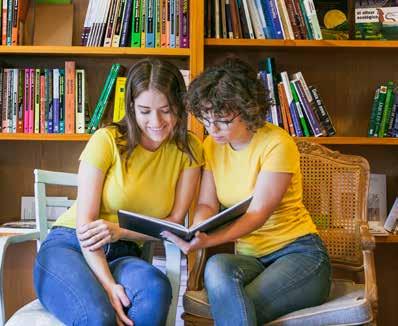
“Unless you’re always around queer people and have a lot of queer friends, it can be really difficult to feel comfortable,” says Acosta. “There were seniors who came to our GSA who had never come out and they came out to GSA.”
Another member of Acosta’s club, Derrick Wheeler, echoes some of the feelings Acosta shared towards their GSA. “It was a different atmosphere than normal life ... you felt like you could express yourself better,” says Wheeler. “It is good to have a place where you can be with other queer people in a positive environment.”
Wheeler says that during their time in the club, they saw this be especially true for the underclassmen who were new to the school and really needed a space like that.
“I used to just show up there when I had nowhere else to go after my first club, but then I actually started liking it and went more often,” says Wheeler.
GSA provides an irreplaceable service to queer kids. Giving them lasting relationships and community that helps them learn who they are, but also what it means to be queer and building them up to be a truer and more confident version of themselves after high school.
It was the value of these types of communities that encouraged Acosta to join USF’s Pride Alliance when they began college, and eventually move into an LGBTQ+ living community on campus where they met many of their friends.
“I would not be the person I am today if I didn’t have the GSA, it was the biggest part of high school for me,” says Acosta.

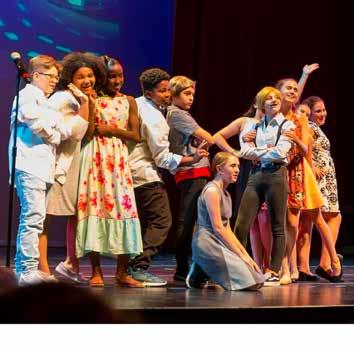

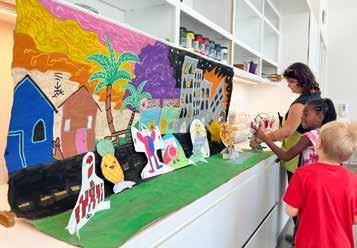
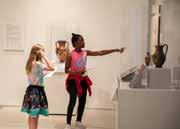


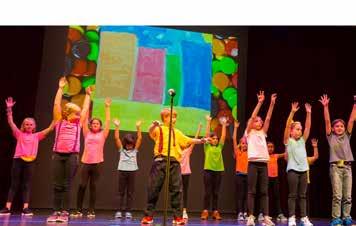
AGENDER
AROMANTIC ASEXUAL BISEXUAL CISGENDER DEMISEXUAL ENBY FAMILY GAY
GENDER FLUID
GENDER IDENTITY
GENDER QUEER INTERSEX

LATINX LESBIAN PANSEXUAL QUEER RAINBOW SEXUAL ORIENTATION TRANSGENDER
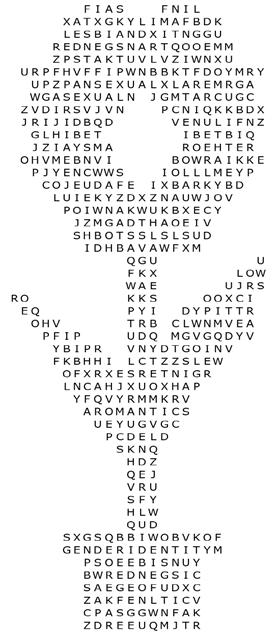
The LGBTQ+ community is as lovely and diverse as the flags which have come to represent us, some of which can be seen below.
As we cultivate our community we also continue to grow, not unlike a beautiful garden. Color in the flower seen here using one or all of your favorite colors found in these Pride flags!











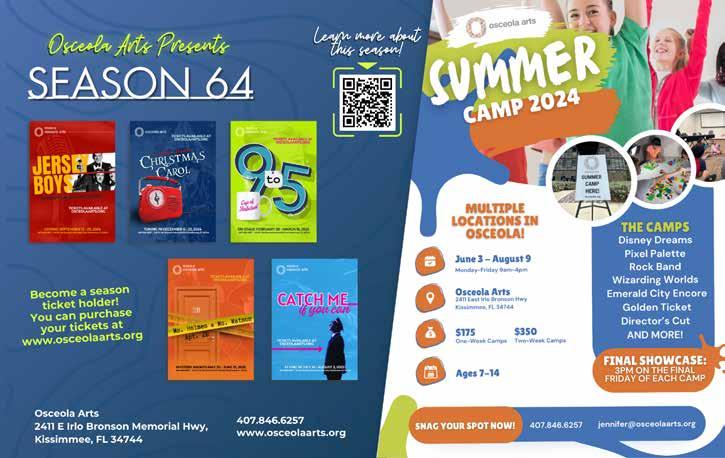
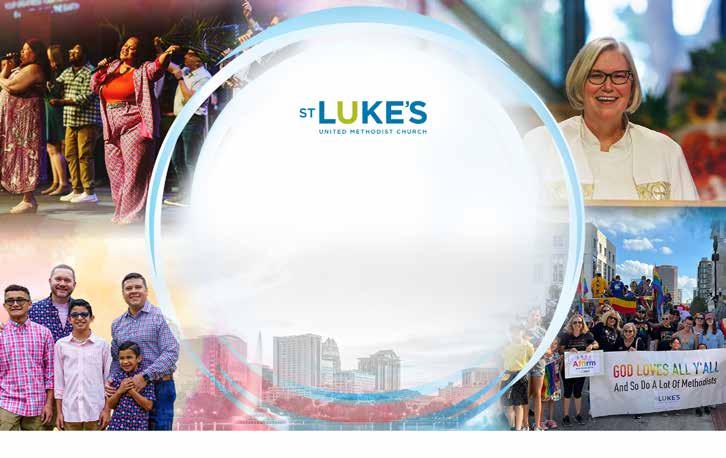


According to The Williams Institute, 5.5% of Americans identify as LGBTQ+. In Florida, that number is 5.4% of the state's population – representing parents, children, siblings and everyone in-between.
Whether you identify as LGBTQ+, you’re the loved one of someone who does or even both, you’re an important part of an ever-expanding community. To help you navigate what that means we’ve put together this list of resources serving the LGBTQ+ community on the national, statewide and local levels.
617-424-9595, BiResource.net
BRC builds bridges within the LGBTQ+ and ally communities while fostering bi-supportive social spaces.
813-870-3735, EQFL.org
Equality Florida is the state’s largest civil rights organization dedicated to securing full equality for Florida's LGBTQ+ community.
GLAAD.org
GLAAD is the nation’s largest LGBTQ+-focused media organization.
212-727-0135, GLSEN.org
GLSEN is an education organization working to end LGBTQ discrimination and to prompt inclusion in K-12 schools.
202-628-4160, HRC.org
HRC is the nation’s largest national LGBTQ+ civil rights organization which envisions a world where LGBTQ people are ensured of their basic equal rights.
202-642-4542, TransEquality.org
The NCTE is the leading social justice advocacy organization winning lifesaving change for transgender people.
415-392-8442, NCLRights.org
The NCLR is committed to advancing the civil and human rights of LGBTQ+ people and their families through litigation, legislation, policy, and public education.
ALSO Youth
941-951-2576, ALSOYouth.org
ALSO Youth provides programming and services for LGBTQ+ youth, their families, friends and the community at large in Sarasota and Manatee County.
CAN Community Health
844-200-5884, CANCommunityHealth.org
CAN Community Health provides education, peer support and other health services in Sarasota and Tampa Bay.
Empath Partners in Care
727-328-3260, MyEPIC.org
EPIC supports those challenged by chronic and advanced illness as a member of Empath Health, with offices in Clearwater, St. Petersburg and Tampa.
Lakeland Youth Alliance
LakelandYouthAlliance.org
LYA provides a safe space for Lakeland’s LGBTQ+ youth to gather, talk about issues and concerns that are important in their lives and also meet others.

LGBT+ Center Kissimmee
407-201-2544, TheCenterOrlando.org/ Homepage-Kissimmee
The Center promotes and empowers Kissimmee’s LGBTQ+ community and its allies through information, education, advocacy and support.
LGBT+ Center Orlando
407-228-8272, TheCenterOrlando.org
The Center promotes and empower Orlando’s LGBTQ+ community and its allies through information, education, advocacy and support.
727-321-3854, MetroTampaBay.org
Metro Inclusive Health provides LGBTQ+ programming and health services to all, with offices in throughout Tampa Bay.
Orlando Youth Alliance
407-244-1222, OrlandoYouthAlliance.org
OYA provides a safe space for Orlando’s LGBTQ+ youth to gather, talk about issues and concerns that are important in their lives and also meet others.
202-393-5177, TheTaskForce.org
The National LGBTQ Task Force is the social justice advocacy organization working to advance full freedom and equality for LGBTQ+ people.
Trevor Project, The 866-488-7386, TheTrevorProject.org
The Trevor Project is the leading national organization providing crisis intervention and suicide prevention services to LGBTQ+ youth under 25.
212-741-2247, SAGEUSA.org
SAGE is the nation’s oldest and largest nonprofit dedicated to improving the lives of LGBTQ+ older adults.
Williams Institute, The 310-267-4382, WilliamsInstitute.Law.UCLA.edu
The Williams Institute is the leading research center on sexual orientation and gender identity.
See below
PFLAG is the nation’s largest organization dedicated to uniting LGBTQ+ people and their allies, with chapters throughout Central Florida and Tampa Bay. Dunedin: 727-279-0449, PFLAGDunedin.org; Orlando: : 407-236-9177, PFLAGOrlando.org; Riverview: 813-833-7972, PFLAGRiverview.org; Sarasota: 641-270-2022, PFLAGSarasota.org; Safety Harbor: 727-2825358, PFLAG.org/Chapter/Safety-Harbor; St. Petersburg: 727-490-9044, PFLAGStPete.org; Tampa: 813-535-5239, PFLAGTampa.org; Wesley Chapel/Pasco: 443-606-0993, PFLAGWCPasco.org
Youth Alliance
407-244-1222, SeminoleYouthAlliance.org
SYA provides a safe space for Seminole’s LGBTQ+ youth to gather, talk about issues and concerns that are important in their lives and also meet others.
407-244-1222, ZebraCoalition.org
Zebra Youth is Central Florida’s network of organizations providing services to LGBTQ youth ages 13-24.
AQUARIUMS AND ZOOS:
THE FLORIDA AQUARIUM
813-273-4000
FloridaAquarium.org
ARTS AND ENTERTAINMENT:
TAMPA THEATRE
813-274-8981 TampaTheare.org
FAMILY DIPLOMACY
813-443-0615 FamilyDiplomacy.com
CAMPS:
AMERICAN STAGE THEATRE COMPANY
727-823-7529
AmericanStage.org
CREALDE SCHOOL OF ART 407-671-1886 Crealde.org
OSCEOLA ARTS 407-846-6257 OsceolaArts.org
DAVID A. STRAZ CENTER FOR PERFORMING ARTS
813-229-7827 StrazCenter.org
TAMPA MUSEUM OF ART 407-937-1800 TampaMuseum.org
COMMUNITY ORGANIZATIONS:
PFLAG RIVERVIEW
813-833-7972
PFLAGRiverview.org

STEPHANIE VANOS FOR ORANGE COUNTY SCHOOL BOARD, DIST 6 407-815-5829
VoteVanos.org
THE WALDEN SCHOOL 407-677-8225
WaldenCommunitySchool. com
WECARE FAMILY CONNECTIONS 813-898-7273
WeCareFC.org
HEALTH AND WELLNESS:
BECKMAN & ASSOCIATES
407-647-4740
BeckmanAndAssociates. com
CAN COMMUNITY HEALTH
CANCommunityHealth.org
Library:
Orange COunty Library System 407-835-7323 OCLS.info
MEDIA:
WATERMARK PUBLISHING GROUP 407-481-2243 813-655-9890 WatermarkOnline.com
MOVING AND STORAGE:
1776 MOVING AND STORAGE, INC 407-251-4770 1776Moving.com
MUSEUM AND GALLERIES:
ART AND HISTORY MUSEUMS - MAITLAND 407-539-2181 ArtAndHistory.org
ORANGE COUNTY REGIONAL HISTORY CENTER 407-836-8500 TheHistoryCenter.org
ORLANDO SCIENCE CENTER 407-514-2000 OSC.org
TAMPA BAY HISTORY CENTER 813-228-0097 TampaBayHistoryCenter. org
RELIGIOUS SERVICES:
FIRST PRESBYTERIAN CHURCH ST PETE 727-822-2031 FPCStPete.com
ST. LUKES UNITED METHODIST CHURCH 407-876-4981 St.Lukes.org
SHOPPING & RETAIL:
RAD POWER BIKES ST. PETE 727-201-2610 RadPowerBikes.com
TRAVEL AND TOURISM:
I-DRIVE DISCTRICT IDriveDistrict.com
ORLANDO INTERNATIONAL AIRPORT/ MCO 407-825-2001 OrlandoAirports.com
YOUTH ORGINIZATION:
ALSO YOUTH 941-951-2576 ALSOYouth.org
LAKELAND YOUTH ALLIANCE LakelandYouthAlliance.org
ORLANDO YOUTH ALLIANCE 407-244-1222 OrlandoYouthAlliance.org
OSCEOLA YOUTH ALLIANCE 407-244-1222 OsceolaYouthAlliance.org
SEMINOLE YOUTH ALLIANCE 407-244-1222 SeminoleYouthAlliance.org
The LGBT+ Center Orlando & Kissimmee 407-228-8272 TheCenterOrlando.org
ZEBRA YOUTH 407-228-1446 ZebraYouth.org






“IT
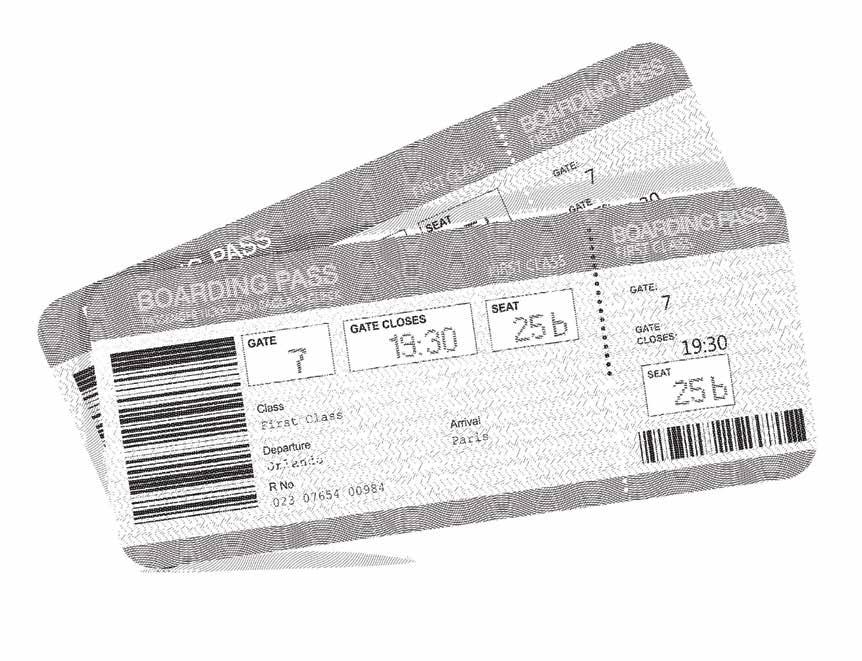
With 165+ destinations worldwide, the opportunity to escape is now. From 110+ Domestic destinations and 55+ International destinations, Orlando International Airport provides access to unique travel experiences that you seek and deserve. Why wait? The time for adventure is now.
Inspiration FOR




